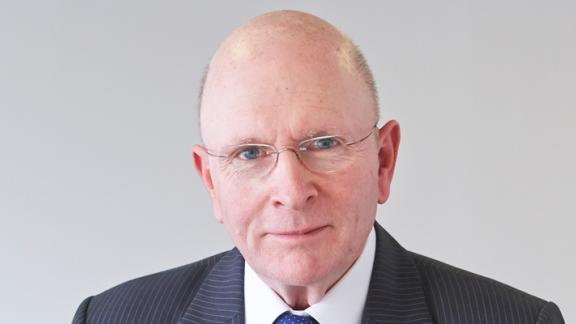Relaxing parts of the Mental Health Act during COVID-19

COVID-19 has placed enormous pressure on the entire health and care system, including the mental health sector. The Coronavirus Act 2020, which recently passed through Parliament in record time, includes amendments to the Mental Health Act 1983. Sean Duggan, chief executive of the Mental Health Network, and Dr Phil Moore, chair of NHSCC’s Mental Health Commissioners Network, accept the amendments will assist clinicians during this period, but express some concerns about the impact they may have on patient safeguards.
Amendments to the Mental Health Act
While we now have the legislation, which amends the Mental Health Act 1983, it hasn’t currently been enacted.
The amendments to the Mental Health Act 1983 include the following:
- an application by an Approved Mental Health Professional (AMHP) under section 2 or 3 may be founded on a single medical practitioner - rather than the current two – if getting the recommendation of two would be impractical or cause delay
- the length of time that a person who is already an inpatient in hospital can be detained will increase from 72 hours to 120 hours
- the length of time a patient can be detained, pending a report from a practitioner or doctor will increase from six hours to 12 hours
- the time people can be held in a place of safety will increase from 24 hours to 36 hours.
A full list of the amendments and what they mean for clinicians can be found on the Royal College of Psychiatrists' website. NHS England and NHS Improvement has provided guidance specifically for mental health, learning disabilities and autism services.
Potential impact
New guidance from the government states that these powers “will only be enacted if it is deemed nationally that the mental health sector is experiencing unprecedented resource constraints that put patients’ safety at significant risk”. If the crisis continues to escalate, as is expected, it is highly probable that these new powers will be enacted. If they are, we are concerned about the impact on patients and safeguarding issues that will need to be mitigated through strong national guidance and oversight.
There are concerns that the temporary changes to the Mental Health Act 1983 are not compatible with the Human Rights Act, which states the individual has a right to personal freedom and therefore cannot be detained without good reason. Guidance from NHS England and NHS Improvement sets out that services need to ensure that “any restriction on this right has to be lawful, necessary and proportionate”, such as:
- any use of restrictive practice should end at earliest opportunity
- increase in restrictive practice may result in psychological harm for patients, so consider what further support will be needed for these patients
- if further restrictions are necessary, ensure that the inpatient environment has sufficient meaningful activities and therapeutic interactions for patients.
The emergency powers will allow AMHPs to seek advice from one doctor if staff shortages mean that the application would be unduly delayed. AMHPs are required to justify and record their decision. While this is practical during this emergency period, it may mean that patients, depending on where they are and when they are detained, will be subject to different safeguarding measures.
It is important that patients and carers are made fully aware of the reasoning behind the use of emergency powers and that they are only used when necessary.
Over the coming weeks, we will continue to support our respective members by providing updates on the implementation of the Mental Health Act and any new guidance from NHS England and NHS Improvement.
Sean Duggan is chief executive at the Mental Health Network. Dr Phil Moore is chair of NHSCC’s Mental Health Commissioners Network.
The Mental Health Network will be sharing examples of good work such as on how systems are stepping up and putting in place services such as online consultations and 24/7 crisis helplines in record time.



